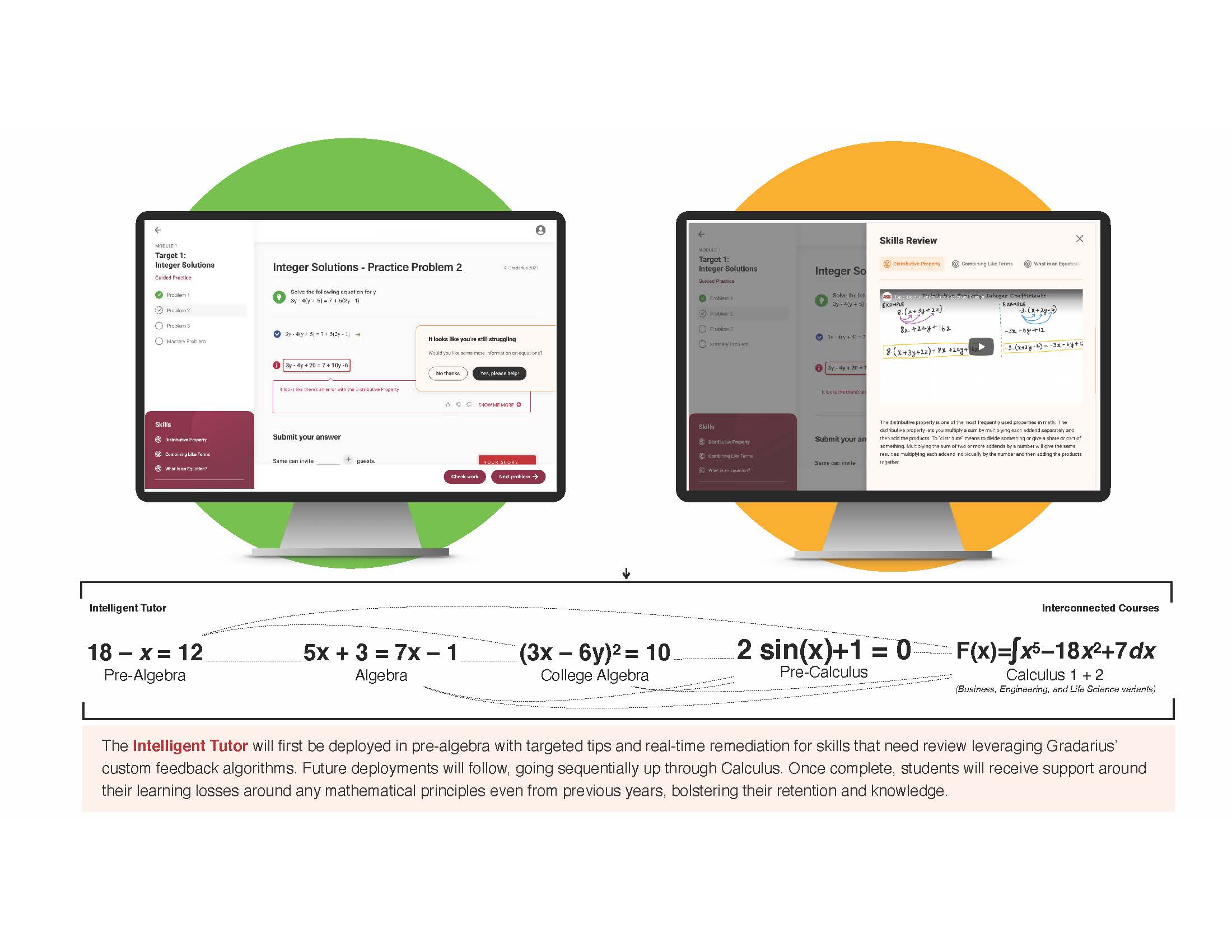ASU Foundation receives $2M grant from Bob & Renee Parsons Foundation

A middle school student at ASU Prep Phoenix Middle School, one of the middle schools where the MACS tool is being tested. This image was taken before the COVID-19 pandemic.
The ASU Foundation for A New American University has been awarded a two-year, $2 million grant from The Bob & Renee Parsons Foundation to help Arizona middle school students and beyond with math using digital educational resources.
The funding will directly support the development and delivery of Arizona State University's Math, Computer Science and Statistics (MACS) Accelerator, which aims to leverage artificial intelligence and cutting-edge tools to dramatically improve the teaching and learning of math and computer science at the middle school level. The two initial learning tools — focused on pre-algebra and personalized tutoring — are designed to provide students access to individualized learning support in real time and ultimately achieve mastery in the subject.
“The quality of math and science education provided at the middle school level has a direct impact on a student’s lifelong learning,” said Renee Parsons, president and executive creative director of PXG Apparel. “These tools focus on that critical window, heighten educational resources and lead students to academic success in high school and higher education.”
Math and computer science are considered critical building blocks for today’s youth, yet only 41% of Arizona eighth graders are math proficient, according to 2019 AzMerit test results by Expect More Arizona. Additionally, minority and low-income students — which encompass more than half of Arizona youth — are found to have lower educational attainment rates. This data shows there are clear learning gaps at the K–12 range that often hinder a student’s ability to master critical learning objectives at the postsecondary level and beyond.
“Learning is a lifelong journey, unique to each individual, and ASU is committed to providing access to higher education for anyone who is committed to doing the work,” ASU President Michael M. Crow said. “Bob and Renee Parsons’ support will enable us to advance on this important mission, and their gift will help more students attain a high-quality education and be prepared for next-generation STEM careers, which are vital to the workforce of the future and to economic expansion.”
The pre-algebra pilot will provide schools with a customized diagnostic and remediation tool to meet students where they are in the learning process — whether they're behind due to the effects of COVID-19 remote learning or ahead of state standards. The tool uses an algorithmic, AI approach to identify areas that need improvement and discover the most efficient methods to address these deficiencies. Additionally, the pilot will include added features to further delve into the social and emotional components of learning. ASU plans to implement the tool in 250 Arizona schools by spring 2022.
These equations illustrate examples of the math skills students will learn through the MACS Accelerator’s Intelligent Tutor.
The first phase of the tool will also include a technology-powered, personalized tutor that offers real-time guidance and intervention during the learning and problem-solving process. These technological advancements will help lay the program’s foundation and work to construct the building blocks for additional computer science and data science curriculums, two critical subjects for students to master when preparing for many of today’s jobs.
"ASU Prep Digital is committed to ensuring all students have equal opportunity to thrive at math," said Amy McGrath, deputy vice president of education outreach and chief operating officer of ASU Preparatory Academy. "The tools that will be built thanks to The Bob & Renee Parsons Foundation gift will help identify in real time if a student is falling behind in their understanding of a foundational math concept and provide remediation immediately to help them stay on track, which is what all students across Arizona deserve."
The MACS Accelerator is a collaborative effort among ASU Prep Digital, EdPlus and the School of Mathematical and Statistical Sciences.
“Education is a powerful tool, and it’s our duty to ensure we’re meeting the academic needs of all students — regardless of their background,” PXG Founder and CEO Bob Parsons said. “The innovations being deployed by ASU will prepare students for success not only in higher education but future long-term careers.”
Driven by teachers, coaches and newly designed adaptive learning tools, the MACS Accelerator will help ensure students can achieve academic success and master the skills needed to pursue STEM-oriented career pathways.
“The STEM equity gap won’t be solved if we don’t address math literacy at all levels with the next generation of innovative, scalable, digital tools like the one we’ll build as part of The Bob & Renee Parsons Foundation collaboration," said Phil Regier, university dean for educational initiatives and CEO of EdPlus. "We’re excited to bring our best technical, pedagogical and mathematical minds together to create interventions that will provide millions of youth the foundational knowledge needed to be successful in STEM majors and careers.”
More Science and technology

ASU technical innovation enables more reliable and less expensive electricity
Growing demand for electricity is pushing the energy sector to innovate faster and deploy more resources to keep the lights on…

What do a spacecraft, a skeleton and an asteroid have in common? This ASU professor
NASA’s Lucy spacecraft will probe an asteroid as it flys by it on Sunday — one with a connection to the mission name.The asteroid…

Hack like you 'meme' it
What do pepperoni pizza, cat memes and an online dojo have in common?It turns out, these are all essential elements of a great…


